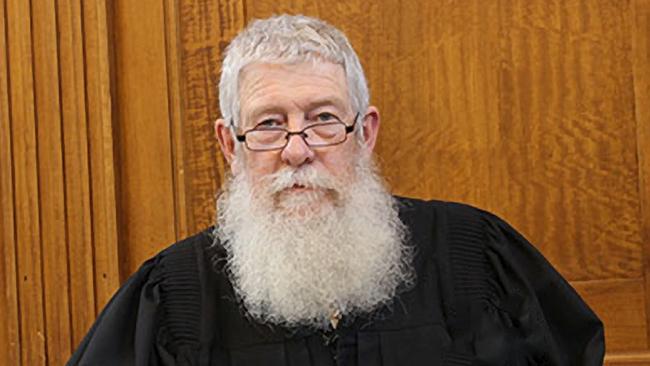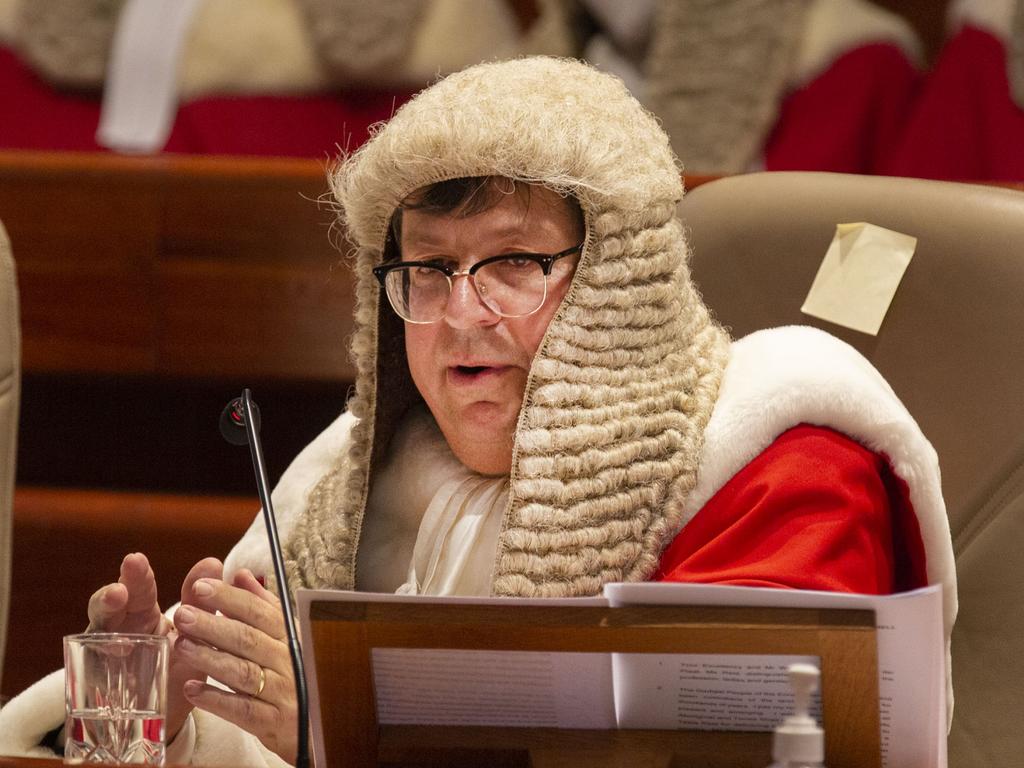Rogue NSW magistrate Roger Prowse to be probed by judicial watchdog
Rogue NSW magistrate Roger Prowse, who has repeatedly criticised superior courts and once told a defendant he was ‘lower than a snake’s duodenum’, is to be investigated.

A rogue NSW magistrate who has repeatedly criticised superior courts and once told a defendant he was “lower than a snake’s duodenum” will be investigated by the state’s judicial watchdog, following four complaints against the outspoken judicial officer.
The NSW Judicial Commission this week referred the complaints against Roger Prowse, who has worked across numerous NSW regional local courts over 25 years and is president of the Association of Australian Magistrates, to its conduct division.
Once the conduct division has investigated the complaints, it may refer the matter to parliament, which could lead to the veteran magistrate being struck off.
Glenn Dirix, a domestic violence defendant who appeared before Mr Prowse, reported the magistrate to the Judicial Commission last year after he called him “disgusting, reprehensible, vile, scandalous” and said if he had “a choice of speaking with Mr Dirix or picking up dog excreta, I’d go for the dog excreta really because it’s less odious”.
“Odious is a good word actually … he is odious to the extreme,” Mr Prowse told Port Macquarie local court at the time.
“I would’ve preferred go swimming in an open sewer than have to speak with Mr Dirix because at least in an open sewer you know what you’re dealing with as opposed to a scandalous scoundrel like (he) is.”
During Mr Dirix’s hearing, Mr Prowse referred to a court officer as “a strapping young thing” and criticised legal aid policies as “inane, poorly thought-out, stupid”. He called out the NSW District Court for being “generous … as usual” and labelled a decision made by the court as “scandalous and outrageous”.
This was not the first time Mr Prowse was caught criticising superior courts. In the middle of last year, he attacked former High Court judge Michael Kirby, NSW Court of Appeal judge John Basten, and Supreme Court judge Dina Yehia in a judgment, claiming they had not “ever been met with the reality on the ground”.
The judgment regarded an adjournment request from both the Director of Public Prosecutions and defence lawyers from the Aboriginal Legal Services, after multiple charges against a defendant were dropped.
Mr Prowse denied the request and instead instantly entered a not guilty plea, committed the accused to stand trial, and lambasted a legislative scheme to incentivise early guilty pleas as “altruistic virtue-signalling guff”.
NSW Supreme Court Chief Justice Andrew Bell later panned Mr Prowse for his “self-indulgent and disrespectful” attack on the judges.
He said if judges of “lower courts” do not respect or are “seen to be openly critical” of decisions of superior courts, “why should we expect members of the public to respect any judicial decision? The same applies to judicial criticism or even personal attacks on other judges in the judicial hierarchy including self-indulgent and disrespectful suggestions that they are out of touch,” he said. “Comments such as these are corrosive of respect for the rule of law.”
Southern Cross University dean of law David Heilpern, who worked alongside Mr Prowse as a magistrate, told The Australian he was “gobsmacked” to read Mr Prowse’s comments.
“The level of insult is way beyond the pale,” Mr Heilpern, who acted for Mr Dirix in his Judicial Commission complaint, said.
“Of course it’s appropriate to make comment on people’s behaviour when sentencing them, and it’s OK to make it clear when their behaviour is completely reprehensible. But to insult and demean (Mr Dirix) in that way is beyond the pale and I’ve never seen anything like it.”
Mr Heilpern said Mr Prowse’s criticism of superior courts was also a concern. “The hierarchy of the courts is one of the foundations of our justice system,” he said. “If you have lower court judicial officers criticising higher courts, confidence in the justice system will be deeply ill-effected.”
Mr Prowse did not reply to The Australian’s request for comment.





